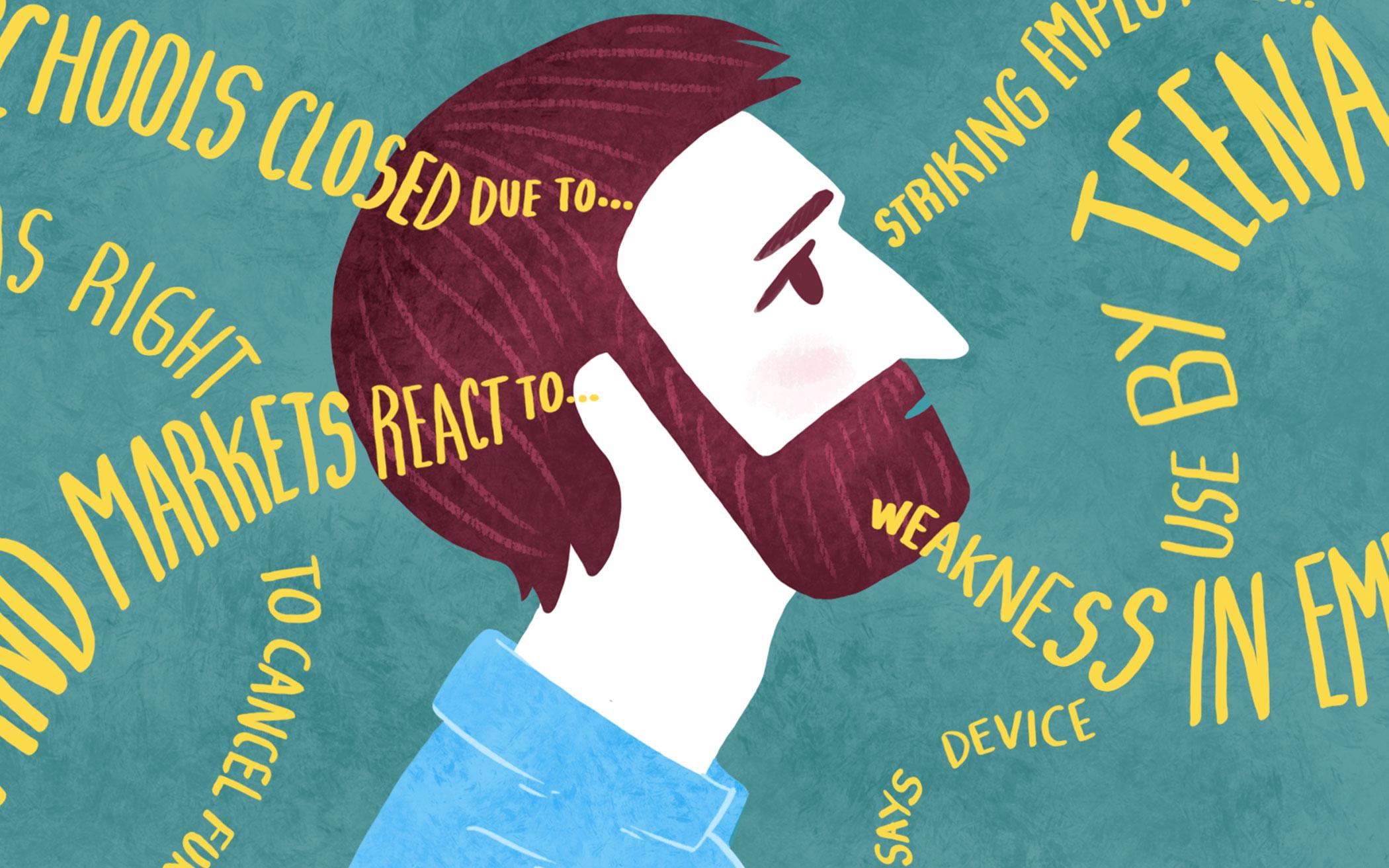In Acts 17, Paul is basically called a nitwit by his new friends. Here’s what happened.
While Paul is waiting for some people, he wanders around Athens and sees a lot of gods. There’s even a plaque for some unknown god, giving Paul the hook he’s looking for.
He starts talking to folks in the synagogue and the market. He even gets an invite to the Areopagus, perhaps The View of his day.
And it’s here at the Areopagus that the accusation is leveled, the insult made: the insinuation attacking Paul’s intelligence.
Some Epicureans and Stoics (talk about worldviews!) call Paul a babbler: “What is this babbler trying to say?” (v. 18).
The word σπερμολογος that we translate as “babbler” refers to a small bird that goes around picking up seeds here and there. It implies a person who doesn’t do much original thinking or research, but instead hangs around in the marketplace and snatches bits and pieces of other people’s conversations and ideas and passes them along without a lot of critical thought. These are prattling, empty, impertinent people, and the socialites hanging around in the Areopagus weren’t exactly paying Paul a compliment. If Buddy the Elf (the main character in the Christmas movie Elf) were there, he might have referred to Paul as a “cotton-headed ninny muggins.”
It turns out Paul was not a babbler. His knowledge of the Word, the leading of the Spirit, his deep reflection on life, and his ability to think and speak clearly won some people over and caused others to sneer.
But I’m left struggling with the accusation of being a babbler. And I wonder.
I wonder if I’m a babbler. I wonder if my students are babblers.
In a fairly well-known study funded by Microsoft and published in Time (May 14, 2015), researchers found that goldfish have an average attention span of nine seconds. The same research found that people will generally lose concentration after eight seconds. That means goldfish can concentrate longer than people can.
Because of this short attention span, we graze continually and rarely stop to chew and digest. I hear it all the time when discussing things with students. “Oh yeah, I heard that. . . .” “Did you hear that . . . ?” Have you heard . . . ?” When pressed, it’s almost always the case that the student didn’t “hear” anything but instead read a headline on a website, overheard an announcer while flipping through channels, or skimmed an email to get the gist and just enough info to form some sort of opinion on the topic du jour.
I do it too. As part of my morning devotions, I read the headlines on the BBC app on my phone. During the day, I can say I “heard” that the economy in some country was struggling and the trial of a person in Madagascar wasn’t going well. But if pressed, I might not be able to give much more than the headline I skimmed during devotions.
While living and working in Kenya, flocks of ibis would often land in the field next to our home near Kisumu. The ibis has a long, narrow beak that allows it to dip into spider burrows in the field and pull out the juicy arachnids. The ibis walk across the field, dipping, grabbing, swallowing, and rarely sitting still. They are babblers.
Like the Epicureans and Stoics of the day, people today are looking for answers. And those who are willing to give the answers are plentiful. The “spirituality” sections of today’s bookstores are packed, and much of it is laughable. From “name it and claim it” to “cosmic light forces” to “one with the universe” and so much more, it’s a babbler’s smorgasbord.
Paul wasn’t willing to play that game, and we shouldn’t be either.
But breaking away from the “I heard” mentality into the deeper “I know; I’m convinced” mentality will take work.
My dad is 79. We celebrated recently because he now uses Facebook and can keep up with the grandkids. My dad reads differently than his grandkids. Many of the grandkids will read with an earbud in one ear, one eye on the phone to keep up with Snapchat, texts, and so forth, and maybe even have a conversation with someone—all while reading.
My dad never tried to tackle that dizzying array of skills. When he reads, the only noise is the ticking of the clock on his wall. When he reads something challenging, he will often look up and to his left. He stares blankly for some time as he processes what he just read. Then he goes back and re-reads or continues. Months later, my dad can easily talk about the book in depth and has formed his own opinions on it through reflection. He doesn’t babble about what he “heard.” He talks about what he thinks, based on reflection and thought.
When it comes to eternal truths and life-and-death questions, the world doesn’t need “I heard” answers. It needs straight talk based on conviction, inspiration, reflection, faith, thought, and conviction. None of that happens through grazing. That can only happen as we stop and meditate, contemplate, reflect, and study. Prattling, empty, impertinent people are not good witnesses to the eternal implications of what’s at stake. Biblical illiteracy and an “I heard” frame of mind will not win converts and disciple new believers. Deep understanding of God’s Word and a willingness to engage culture at a deep level will win an audience.
Edward Bernays was active in the early days of public relations in America. He did much to shape opinion, sell products, and help politicians get what they wanted. With a deep understanding of how it worked, Bernays said, “We are governed, our minds are molded, our tastes formed, our ideas suggested, largely by men we have never heard of.”
Today this is truer than ever, especially for those of us who get our information from grazing. Information floods our Facebook pages, and the news we get depends completely on which network we watch. In the era of “fake news,” it’s never been easier to be a babbler. And it’s never been easier to get it wrong.
Paul—perhaps remembering the accusation from Athens—wrote to the Romans to encourage them not to conform to the pattern of this world, but to be transformed by the renewing of the mind.
Babblers will struggle with that kind of transformation. Renewal—and the robust conversations that come with renewed minds—will take a commitment to disciplined study and thought. With some focus, we can move away from the “heard” mentality.
About the Author
Mark Volkers is chair of the communication department at Dordt College and teaches students how to communicate with film and video. He and his wife, Janelle, attend Calvary CRC in Orange City, Iowa.







